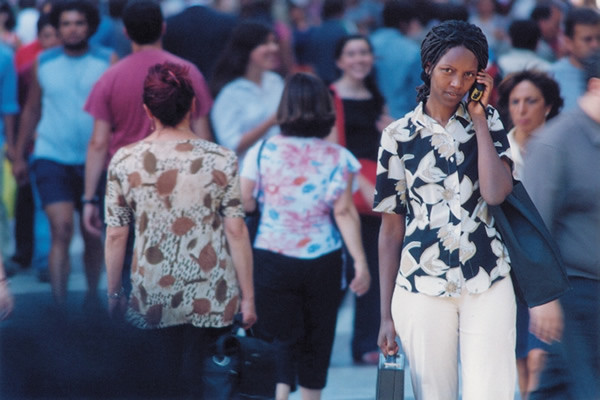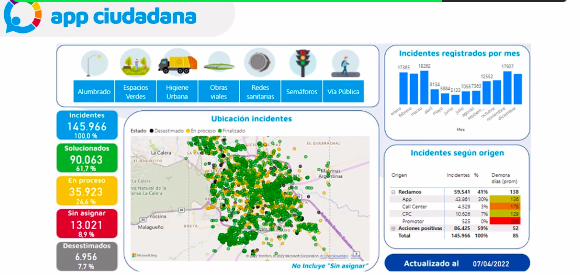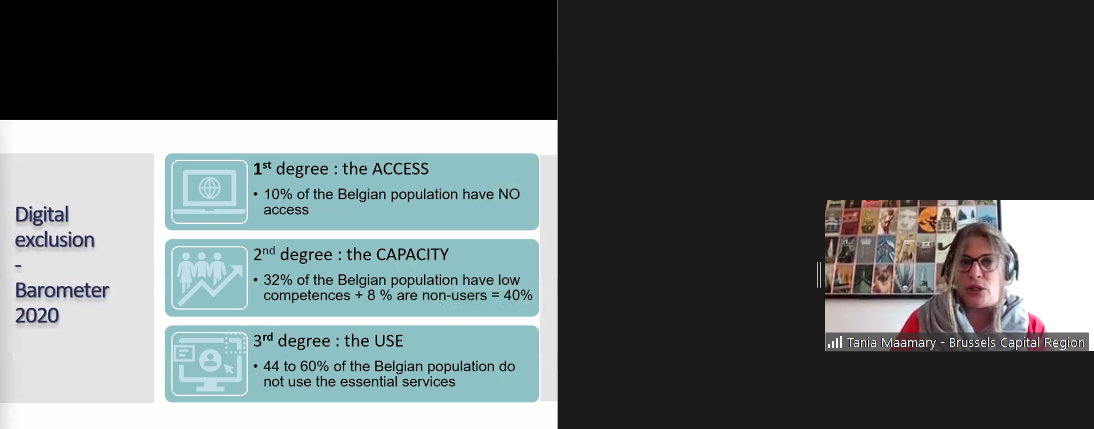
ACNUR/ I.Carmona y D.Guerrero
Digital transformation that leaves no one behind
“Gobierno móvil” is an app for citizens that offers a centralised platform for the population of the Municipality of Córdoba. The single multi-platform system addresses all the population’s needs without people needing to physically approach city council buildings. This is one of the innovative mechanisms that the Municipality of Córdoba is implementing with the aim of building an “intelligent and electronic” municipality where all public policy decisions are evidence-based and involve the active participation of the city’s 1.5 million residents.

The process of digital transformation in Córdoba is one example of the new ways that local and regional governments are using to deliver public services through digitisation and improve people’s quality of life. The topic was covered on 17 May during the Challenges and opportunities of digitalisation in metropolitan spaces webinar that was held on the occasion of World Telecommunication and Information Society Day.
As Eloy Lafaye, Project Manager - Digital Innovation at the Greater Paris Metropolis put it: “We aim to break new ground to solve challenges, with new approaches”, as is well demonstrated by the Smart Parking solution, which is based on CCTV data to help drivers to find an available spot in real time. By doing so, it helps promote access to local businesses and reduce gas emissions in the metropolis.
But what happens when not everyone has access to a computer, or knows how to use it? Unequal access to digital technology and digital illiteracy is a key roadblock when looking at how to improve people's lives by making use of information and communication technologies, argued Claudio Beato, Municipal Secretary for Economic Development at Belo Horizonte, during the webinar.

Needless to say, the Covid-19 pandemic has been a turning point in raising awareness of the barriers that result from not having access to the internet. In Brussels, the pandemic “has increased and accelerated the digital transformation of our society because it has shown the digital divide and the need to improve access, objectives and knowledge”, explained Tania Maamary, Digital Inclusion Coordinator for the Brussels-Capital Region, while presenting the new Digital Assimilation Plan 2021-2024. The plan includes practices such as raising awareness, providing equipment, coordinating and offering support. The Nouakchott region meanwhile has set up specific departments for the digital transition after having launched a digitalisation project to improve fibre optic internet access to low-income areas during the pandemic. Toronto, on the other hand, added WiFi access points at the top of towers and buildings without internet access.

Just past the worst of the pandemic emergency, Toronto conducted a study to understand the role of digital technology through the population and understand if there was a digital divide. The result: 38% of households reported download speeds below the Canadian Radio-television’s national target, explained Alice Xu, Manager of the Connected Community/Smart City programme at Toronto’s Technology Services Division, during the webinar.
In this post-pandemic normality, the debate on the table is how local and regional governments can better leverage digitisation, particularly with regard to furthering equity, but also in terms of prosperity and sustainability. Harare, for instance, is improving the infrastructure for digitisation by bringing in new technology, “as platforms allow more tasks to be carried out digitally”, said Samson Madzokere, Head of ICT Division, Harare.
The Barcelona Metropolitan Area (AMB) aims to offer digital services that are user-friendly, free of charge and accessible to everyone, explained Núria Freixas, Innovation Coordinator at the AMB. At the end of the day, “digital transformation is not about having the latest digital gadget, but about making things easier, within everyone's reach”.
If you would like to share anything related to the webinar, the Metropolis Learning Forum or if you want to collaborate with us, please send us an email!

